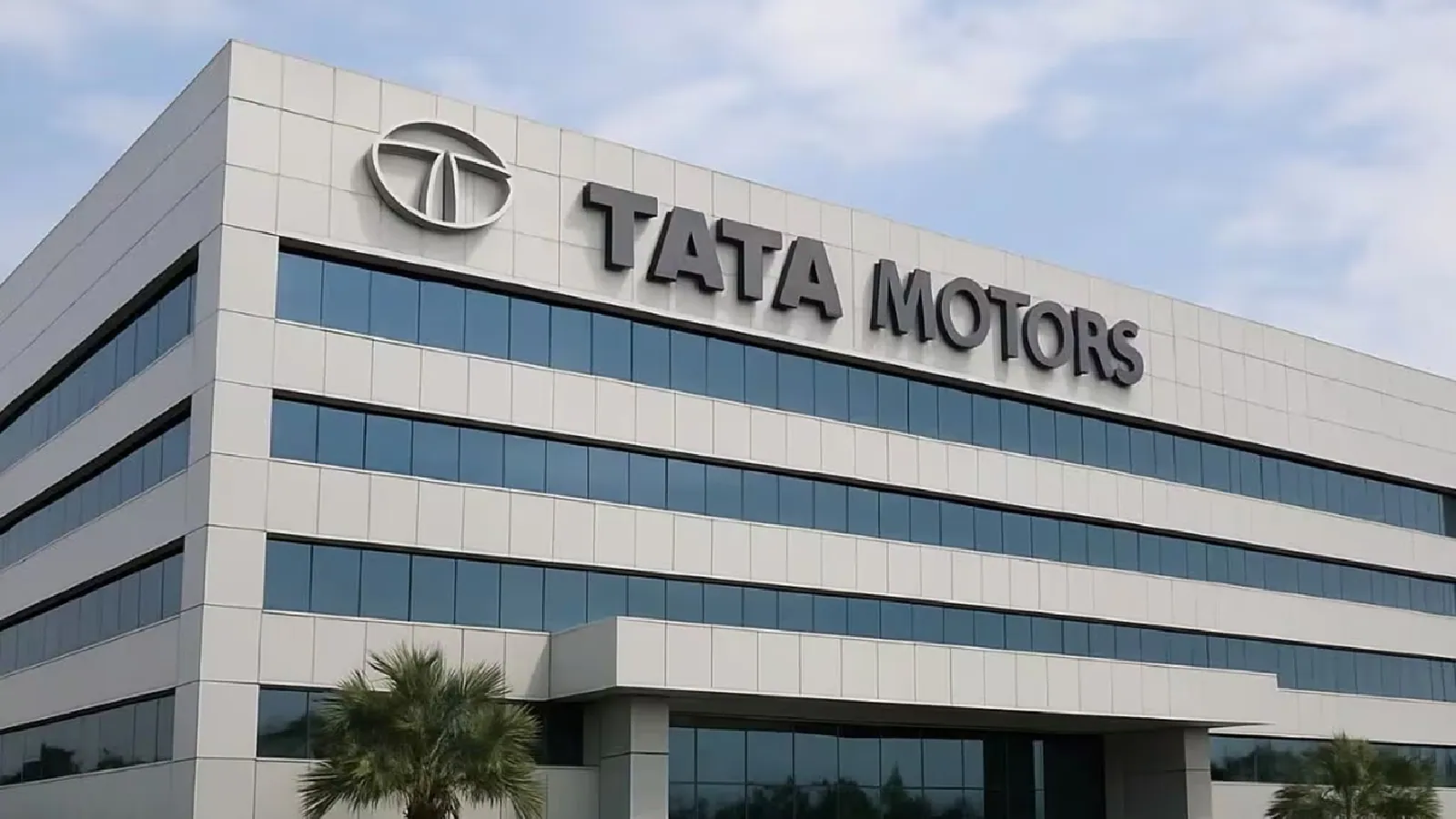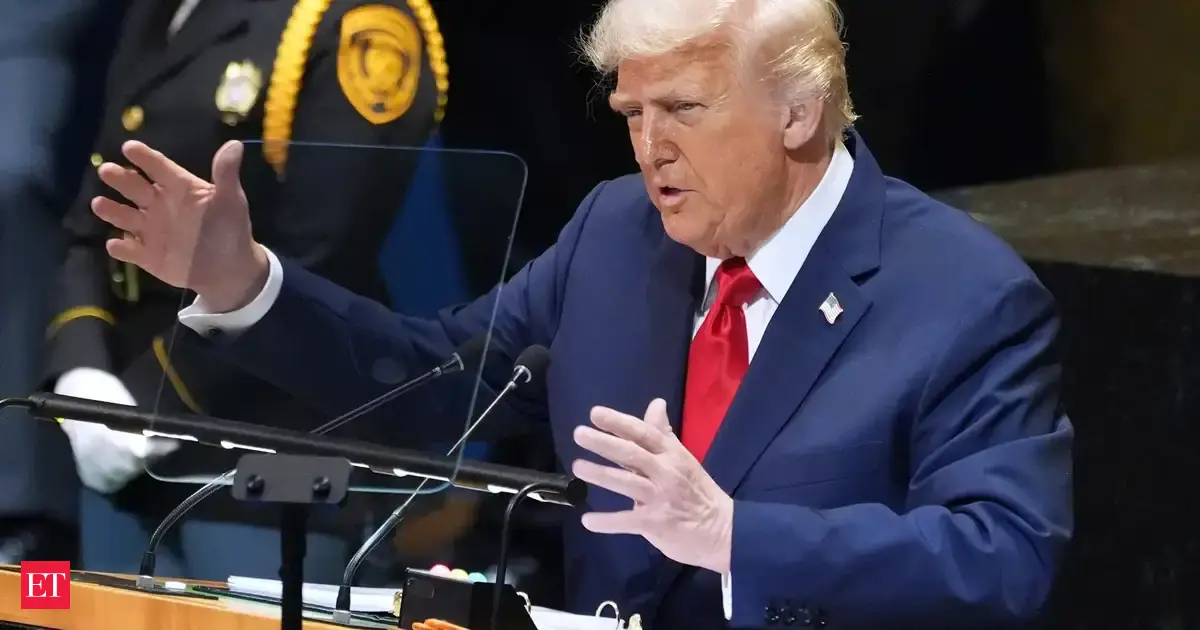Tata Motors Demerger: Know Record Date, Share-Swap Ratio, New Entities’ Names, Other Details
By Mohammad Haris,News18
Copyright news18

Tata Motors Demerger News: The long-planned demerger of Tata Motors’ commercial vehicle (CV) and passenger vehicle (PV) businesses is going to become effective on October 1, 2025. With this, the Mumbai-based automaker’s business will be divided into commercial and passenger units separately. According to a regulatory filing on September 26, Girish Wagh will lead Tata Motors’ commercial vehicle entity, while Shailesh Chandra will head the passenger vehicle unit. Here’s everything you need to know:
What Exactly Is Happening?
Tata Motors is separating its CV business from the rest of the group and creating two independently listed companies: one housing the commercial vehicle business and the other holding the passenger vehicle business (which will include EV operations and certain investments such as JLR). The corporate reorganisation follows board approvals and required regulatory processes, and has now received the necessary NCLT nod.
Why the split? Management says the move will let each business pursue its own strategy more nimbly, sharpen accountability, and unlock value for shareholders. The CV and PV franchises have different dynamics, capital needs and growth levers — separating them makes strategic sense.
The company had announced the demerger in 2024.
Tata Motors Demerger: Effective Date and Timeline
Effective date: October 1, 2025. This is when the scheme legally takes effect. “The Boards of the respective companies, at their meeting held today resolved to make the Scheme effective on October 1, 2025,” Tata Motors said in its filing.
Appointed date (for accounting/valuation purposes): July 1, 2025.
Operational/ trading timeline: The company has said operational formalities (share allotment, separate tickers, listing dates) will follow after the scheme becomes effective.
Tata Motors Demerger Share-Swap Ratio
Entitlement (share-swap) ratio: 1:1 — for every fully paid Tata Motors share held on the record date, shareholders will receive one share in the new CV company (TMLCV). In practical terms, shareholders end up with identical shareholding proportions in both listed entities. This 1:1 ratio has been part of the scheme since the board announcement.
Names Of The Two Entities (What Will Be Called What)
The scheme uses temporary/legal names during the process; there is also a planned renaming once the transactions are complete:
TML Commercial Vehicles Limited (TMLCV) will receive the commercial-vehicle business. After the scheme becomes effective, TMLCV is expected to be renamed ‘Tata Motors Limited’.
The existing listed company (current Tata Motors Limited) — after transfer/merger mechanics are completed, the existing listed entity that retains the passenger-vehicle business (including EVs and JLR exposure) is expected to be renamed ‘Tata Motors Passenger Vehicles Limited’.
Tata Motors Demerger Record Date: When Will You Qualify?
The record date (the cut-off to determine which shareholders are eligible to receive shares in the new CV company) has not been announced yet. The company will notify exchanges and publish a stock-exchange filing with the record date once the formalities and filings with the ROC are complete.
“The Company will separately notify the Effective Date of the Scheme and the Record Date…,” Tata Motors said in the filing.
What Shareholders Should Expect On Their Demat Account
If you hold whole shares, the 1:1 entitlement means you should receive one new CV share per Tata Motors share — there is no fractional allocation because the ratio is 1:1.
If you hold shares in a custodial/demat account, the transfer or credit of the new company’s shares will happen automatically through the depository once the company completes corporate action formalities and the record date passes.
The exact timing of credit depends on registrar processes and exchange listing timelines; expect a separate announcement from Tata Motors and the registrar.
Tax, Voting and Dividend Implications
Tax: The scheme was proposed to be structured as tax-neutral for the companies and shareholders (as per the company’s scheme documents), but tax outcomes might vary by investor and by subsequent transactions (e.g., if you sell either stock).
Voting: Post-demerger, your percentage ownership (and therefore aggregate voting power across the two listed entities) remains materially the same because of the 1:1 entitlement. Each company will have its own board and corporate governance.
Dividends and payouts: Each entity will declare dividends independently, based on its standalone earnings and policy.
Tata Motors Share Price
Shares of Tata Motors on Friday, September 26, rose by 1.3% to close at Rs 672.9 apiece on the NSE.
The stock is down 32.5% in the past one year. The share price is lower by 41.8% as compared with its peak of Rs 1,156 apiece recorded on July 29, 2024.



